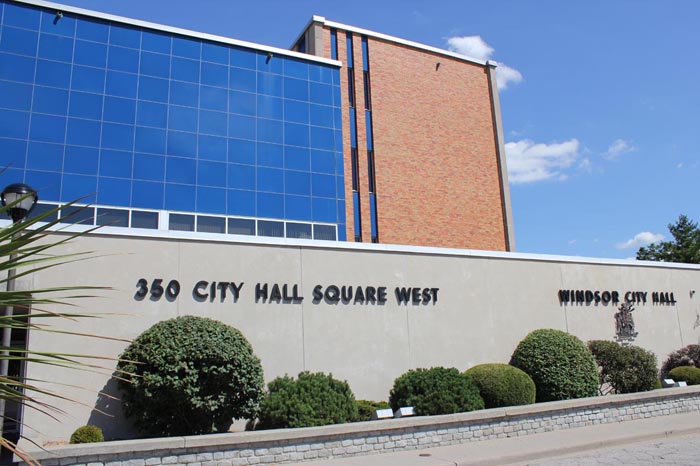The Urbanite – Jon Liedtke – Dec. 4, 2013
Perhaps we are just too damn polite up here to ask someone to leave when they’ve overstayed their welcome.
If you look at the ways that politicians both enter and leave office in Canada, since 1867, there have been few situations which warranted even the thought of removing somebody from office before the completion of their term.
Traditionally, when a political scandal got to the point of bringing embarrassment to the politician, the office itself or the government as a whole, the embattled elected official did the most honourable thing in a dishonourable situation – put constituents before personal aspirations and stepped aside.
And for the most part, this system worked. Politicians have stepped aside and ran in either byelections or subsequent elections, and residents were able to determine whether or not the politician was still fit for office. post-scandal.
However, there are times when politicians perform such grandiose missteps that citizens begin to contemplate politics absent of the offender.
Toronto mayor (in title only) Rob Ford has seen his powers greatly diminished by his fellow city council members as a result of his seemingly never ending follies which need not be discussed here. His colleagues voted to allocate any non-statutory powers to the deputy mayor and greatly reduced his office budget.
Closer to home, last year Windsor city council members voted to hit Ward 10 councilor Al Maghnieh with the maximum penalty allowed by The Municipal Act – a 90-day dock of pay and removal from all municipal agencies, boards and committees misusing a library credit card issued by former Windsor Public Library CEO Barry Holmes (who has since seemingly skipped town following revelations of his own misuse of taxpayer dollars).
While civics is taught for half a semester in Ontario high schools and is indeed mandated by provincial curriculum, many Windsorites (in Al Maghnich’s case) and Torontonians, Ontarians and Canadians alike (in Rob Ford’s case), were shocked and appalled to learn that a mechanism to remove elected officials was not already enacted in legislation.
In 1995, following a referendum which garnered 80 per cent popular approval, British Columbia enacted recall legislation and citizens’ initiatives (a petition supported by a minimum number of voters to trigger a vote on an issue). Both pieces of legislation were rooted deeply in progressivism and the notion that government’s are beholden to citizens, not the other way around.
While B.C. has yet to see a politician recalled, a politician did resign when it appeared as if a petition to see him recalled had enough signatures. It would appear as if the legislation works.
PC MPP Randy Hillier introduced private member’s Bill 124 in late November which, if passed, would allow for citizens. to trigger a provincial recall if a petition is signed by 25 per cent of voters. Hillier said that he is prepared to amend the legislation to include municipal representation as well.
When I asked Premier Kathleen Wynne her thoughts on recall legislation, she responded that she expects a “robust debate,” but stopped short of endorsing the measure.
When asked what he thought of recall legislation, Mayor Eddie Francis commented that it should be implemented throughout all levels of government equally if it were to be implemented at all.
“If you’re going to introduce recall legislation and hide behind this veil of open and accountable and transparent government… I can assure there are municipal residents across the province that would want to recall provincial politicians of all stripes and federal politicians of all stripes as well,” he said. “It’s a slippery slope, man.”
Francis noted, quite aptly, that constituents elect individuals to represent their interests in government and that the “constituency drives what happens at any political level.”
Francis is correct in stating that introducing recall legislation is a “slippery slope” since at the very core of recall legislation is the notion of undoing the previous will of the electorate.
With a recall, small voices are able to garner much attention and there is the potential for a politician to be removed from office with less votes than which cast them into office. This is something which should worry both politicians and citizens alike.
At the crux of the issue, and at the end of the day, citizens need to demand more accountability and better governance from those whom they choose to elevate to higher office.
Let’s face it, we’ve been lucky in Canada overall. We’ve had scandals here and there, some minor, while others major – but for the most part, our politicians have put their respective offices and governments before their political aspirations, and have stepped down when things went awry.
What we are facing recently is a form of politics where politicians are emboldened by social media ‘celebrity’ status, inaccurate or misleading polling and a lack of being held to account by their colleagues, the media and the electorate overall.
JON LIEDTKE
DEC 4, 2013
PAGE 3

Jonathon Liedtke is the managing editor of The Urbanite, Windsor’s alternative newspaper. He is also a member of Windsor’s “Punk with Horns” band The Nefidovs, and as such, is committed to enhancing and sustaining the arts community.



Leave a Reply